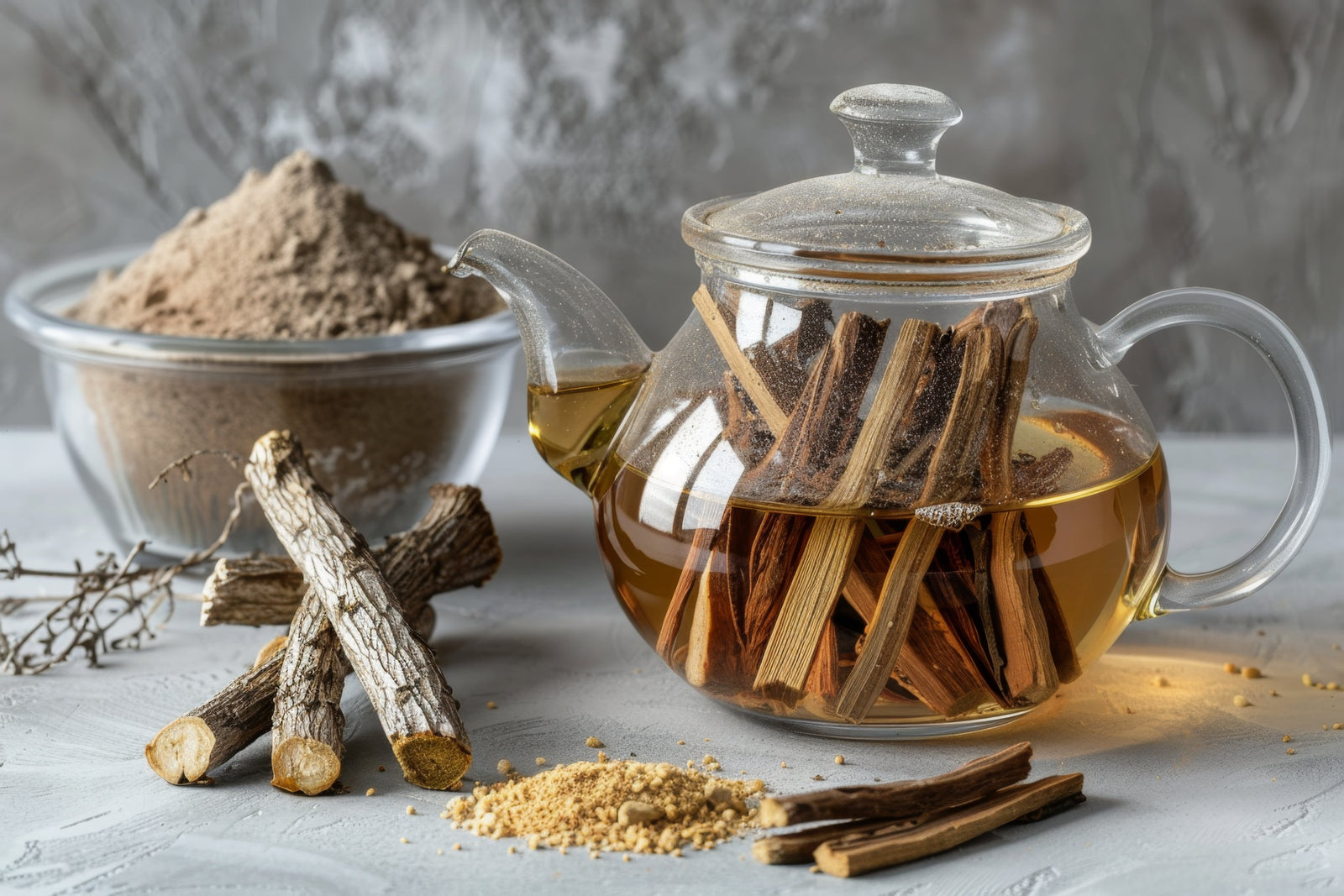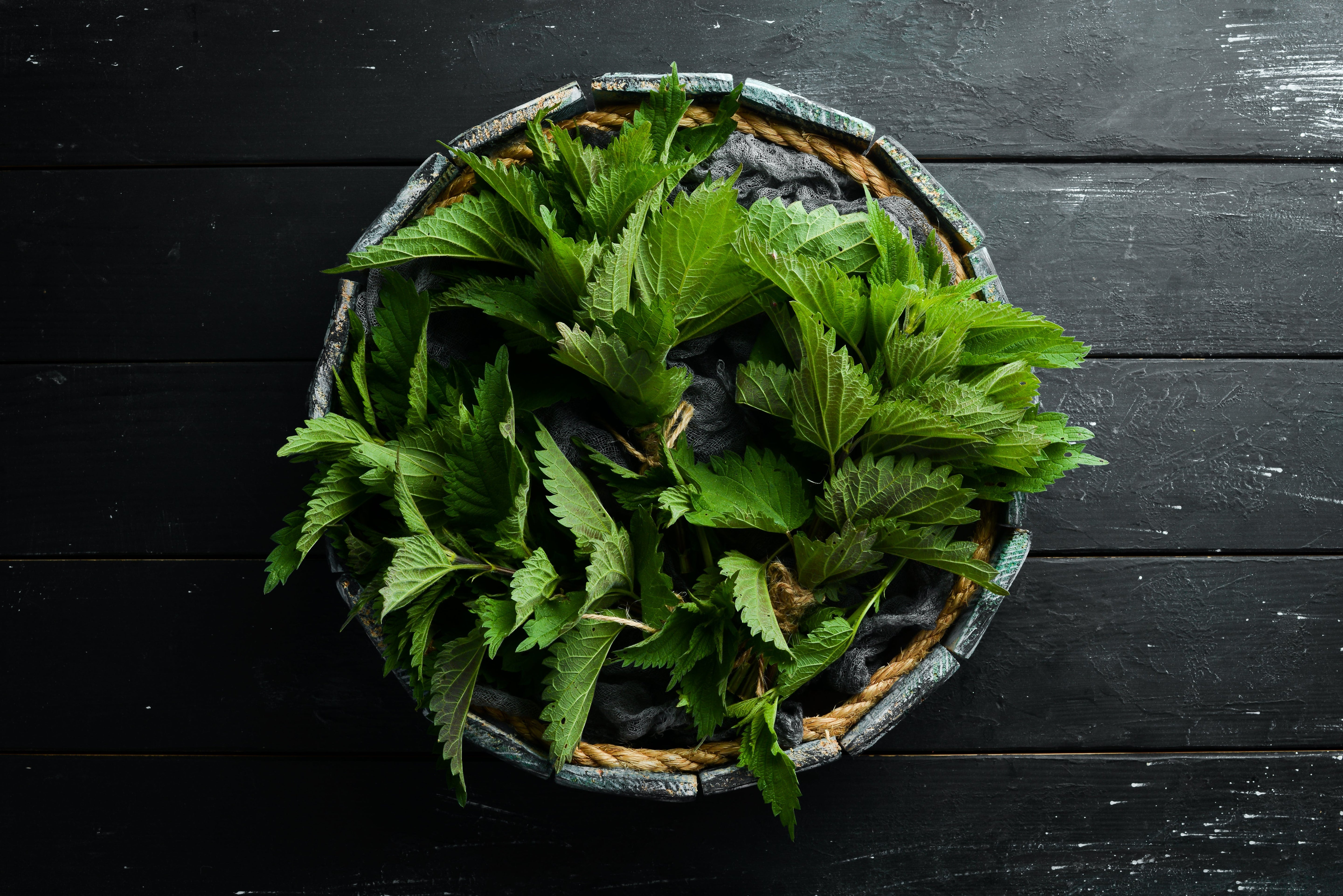Licorice - the sweet taste of nature

Licorice (Glycyrrhiza glabra), also known as sweet root, is a plant that has been appreciated for centuries in various cultures for its unique properties. Licorice is not only distinguished by its medicinal properties, but is also an important element in the food and pharmaceutical industries. The most valued part of the plant is its root, rich in sweeteners and compounds with medicinal properties.
What can we find in licorice root?
- triterpene saponins - contain glycyrrhizin, which gives licorice its characteristic, sweet taste. It supports the action of retaining water in the epidermis, thanks to which it helps to moisturize the skin,
- flavonoids - are antioxidants that help in the fight, e.g. with coronary heart disease, inflammation and viruses. Thanks to their properties, they also support the elimination of the effects of oxidative stress and help protect against too high cholesterol levels,
- essential oil, polysaccharides, B vitamins, proteins and amino acids.
The most important properties of licorice include:
- Anti-inflammatory effect - the main active ingredient of licorice root (glycyrrhizin) has strong anti-inflammatory properties. This is particularly important in the treatment of skin inflammations, such as eczema or psoriasis, as well as in relieving inflammation in the digestive system.
- Supporting the respiratory system - licorice root is traditionally used to treat respiratory problems, including cough, asthma and other lung diseases. Thanks to its expectorant properties, it can facilitate the cleansing of the respiratory tract.
- Protection of the digestive system - licorice root has a protective effect on the mucous membranes of the stomach and intestines, which can be helpful for digestive problems; also for heartburn, stomach and duodenal ulcers, and other digestive problems.
- Supporting liver health - licorice root has a protective effect on the liver, supporting its regeneration and protecting it from harmful substances. It can be used in the treatment of some liver diseases.
- Adaptogenic effect - smooth licorice helps the body adapt to stress by stabilizing cortisol levels and supporting the functioning of the adrenal glands.
- Antiviral and antibacterial properties - studies show that licorice root has antiviral effects and can be effective in fighting some viruses and bacteria.
- Regulating blood sugar levels - some studies suggest that licorice may have a positive effect on regulating blood sugar levels, which is beneficial for people with insulin resistance or type 2 diabetes.
- Supporting the immune system - licorice root strengthens the immune system, which can be helpful in preventing infections and faster recovery.
- Supporting the hormonal system - licorice root phytoestrogens, which in women can alleviate the symptoms of menopause and premenstrual syndrome. Licorice is also used as an aid in the treatment of postmenopausal osteoporosis in women.
Licorice in skin care
Thanks to its unique properties, licorice is used in the production of cosmetics. Its secret lies in the wealth of active ingredients that have a beneficial effect on the skin.
- Anti-inflammatory - licorice contains compounds with anti-inflammatory properties that help soothe irritation, redness and inflammation of the skin. This is especially beneficial in the case of sensitive, acne-prone and redness-prone skin.
- Skin lightening - licorice is effective in lightening discolorations and evening out skin tone. It can be used to treat hyperpigmentation, sun spots and melasma, making the skin more uniform and radiant.
- Anti-allergic properties - licorice root is known to soothe the symptoms of skin allergies, such as itching or burning. It can be used in the care of atopic skin, reducing the discomfort associated with dry and irritated skin.
- Strengthening the skin's protective barrier - the compounds contained in licorice help strengthen the skin's protective barrier, increasing its resistance to external factors. Thanks to this, the skin is better moisturized and protected from the harmful effects of the environment.
Caution should be exercised in the case of long-term use of licorice, especially in large quantities, as it can lead to adverse effects such as increased blood pressure or electrolyte imbalance. Licorice should also not be taken by pregnant women and nursing mothers.






